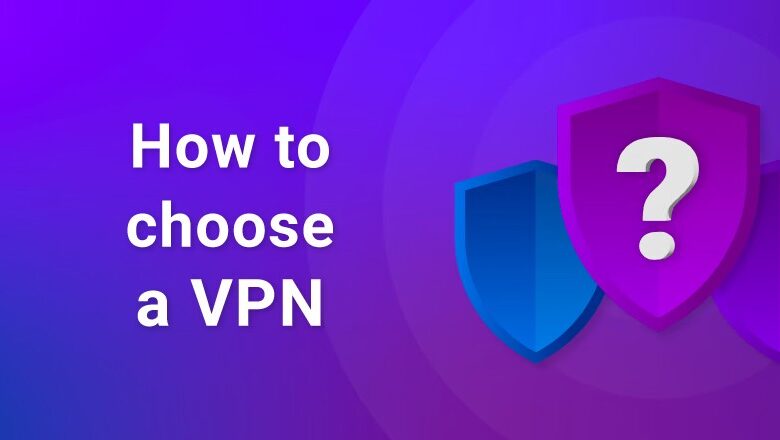How to Choose the Best VPN for Privacy: A Tech Guide
Discover how to choose the best VPN for Privacy with this tech guide, covering features, benefits, and essential considerations.

In today’s interconnected world, online privacy is more crucial than ever. Choosing the best VPN for Privacy ensures your data remains secure, whether you’re browsing at home or on public networks. VPNs, or Virtual Private Networks, are essential tools that encrypt your internet connection and shield your activity from prying eyes.
This comprehensive guide provides an in-depth look at how to select the right VPN for Privacy, exploring key features, compatibility, and performance metrics. Whether you’re a tech enthusiast or a casual user, this guide will help you navigate the complexities of VPN technology and find the solution that best meets your privacy needs.
Read More: How to Choose the Best VPN for Privacy
Understanding What a VPN Is
A VPN, or Virtual Private Network, is a technology designed to encrypt your internet connection.
By masking your IP address and rerouting traffic through secure servers, a VPN for Privacy ensures anonymity and security.
The Importance of Privacy in Today’s Digital World
Privacy has become a top concern with increasing online threats.
A robust VPN for Privacy protects sensitive data from hackers, ISPs, and other malicious actors.
Key Features of a VPN for Privacy
Not all VPNs are created equal.
Essential features like encryption protocols, no-logs policies, and DNS leak protection define a high-quality VPN for Privacy.
Choosing the Right Encryption Protocol
Encryption protocols determine how data is secured.
When selecting a VPN for Privacy, prioritize options like OpenVPN, WireGuard, and IKEv2 for optimal protection.
Understanding the No-Logs Policy
A no-logs policy ensures that your online activities aren’t stored or shared.
This feature is non-negotiable in any trustworthy VPN for Privacy.
Evaluating Server Locations and Speed
The number and distribution of servers impact both speed and accessibility.
A good VPN for Privacy offers numerous servers worldwide for seamless performance.
Compatibility with Devices and Platforms
Not all VPNs support every device or platform.
Ensure the VPN for Privacy you choose works with your operating system and devices, including mobile and desktop.
VPNs and Streaming Services
Streaming platforms often block VPNs.
For uninterrupted entertainment, select a VPN for Privacy capable of bypassing geo-restrictions.
How to Test a VPN for Privacy
Testing ensures the VPN meets your needs.
Tools like DNS leak tests and speed benchmarks reveal the performance of a VPN for Privacy.
Understanding the Role of Kill Switches in VPNs
A kill switch prevents data exposure if your connection drops.
This critical feature enhances the reliability of your VPN for Privacy.
Free vs. Paid VPNs: What to Consider
While free VPNs are tempting, they often come with risks.
Paid options provide better reliability, making them the preferred choice for a VPN for Privacy.
VPNs for Public Wi-Fi Security
Public Wi-Fi networks are notoriously insecure.
A VPN for Privacy encrypts your connection, keeping your data safe even in vulnerable environments.
The Impact of VPNs on Internet Speed
Encryption can sometimes slow down your connection.
Choose a VPN for Privacy that minimizes speed reductions while maintaining robust security.
How to Set Up a VPN for Privacy
Most VPNs are easy to install and configure.
Follow the provider’s instructions to quickly enable a VPN for Privacy on your device.
Troubleshooting Common VPN Issues
Connection drops, slow speeds, and incompatibility are common problems.
Understanding how to resolve these ensures you get the most out of your VPN for Privacy.
Comparing Popular VPN Providers
Market leaders like NordVPN, ExpressVPN, and CyberGhost dominate the VPN space.
Evaluate their offerings to find the best VPN for Privacy tailored to your needs.
Privacy Laws and Their Impact on VPNs
The location of a VPN provider affects privacy policies.
Opt for services based in privacy-friendly jurisdictions when choosing a VPN for Privacy.
Future Trends in VPN Technology
As threats evolve, so does VPN technology.
Features like AI-driven security and quantum encryption represent the future of VPN for Privacy.
Why Everyone Should Use a VPN
VPNs are no longer just for tech-savvy users.
A dependable virtual private network (VPN) is crucial for anyone who values their online privacy. A VPN helps protect your data and keeps your internet activity hidden from prying eyes. With the rise of cyber threats and tracking, having a reliable VPN ensures that your personal information, such as passwords and banking details, stays secure.
People often face restrictions on the internet based on their location. A good VPN helps bypass these barriers and allows unrestricted access to websites and content. This means you can explore the internet freely without worrying about limitations imposed by your country or service provider.
Using a solid VPN can also enhance your online security. It encrypts your internet connection, making it difficult for hackers to intercept your data, especially when using public Wi-Fi networks. With identity theft and online scams on the rise, this added layer of security is essential.
In summary, investing in a trustworthy VPN is necessary for anyone aiming to protect their online identity and maintain unrestricted access to the internet. Privacy, security, and freedom online are key benefits that come with a reliable VPN service.
Read More: How to Choose the Best VPN for Privacy
Conclusion
Choosing the right VPN for Privacy is an essential step in safeguarding your online presence. With features like strong encryption, no-logs policies, and global server networks, VPNs offer unmatched protection and peace of mind.
By understanding your specific needs and comparing available options, you can select a VPN that enhances your privacy without compromising speed or functionality. Take control of your digital life today with a VPN that truly delivers.
FAQs
1. Why is a VPN necessary for privacy?
A VPN masks your IP address and encrypts your connection, keeping your data secure from hackers and surveillance.
2. Are free VPNs safe to use?
Most free VPNs lack robust security features and may compromise your data. Paid options are generally more reliable.
3. Can a VPN improve streaming access?
Yes, VPNs can bypass geo-restrictions, enabling access to content unavailable in your region.
4. How do I test if my VPN is working?
Use DNS leak tests or IP address checkers to confirm your VPN is properly securing your connection.
5. Will a VPN slow down my internet speed?
Some VPNs can affect speed, but premium services minimize these reductions while maintaining strong encryption.











